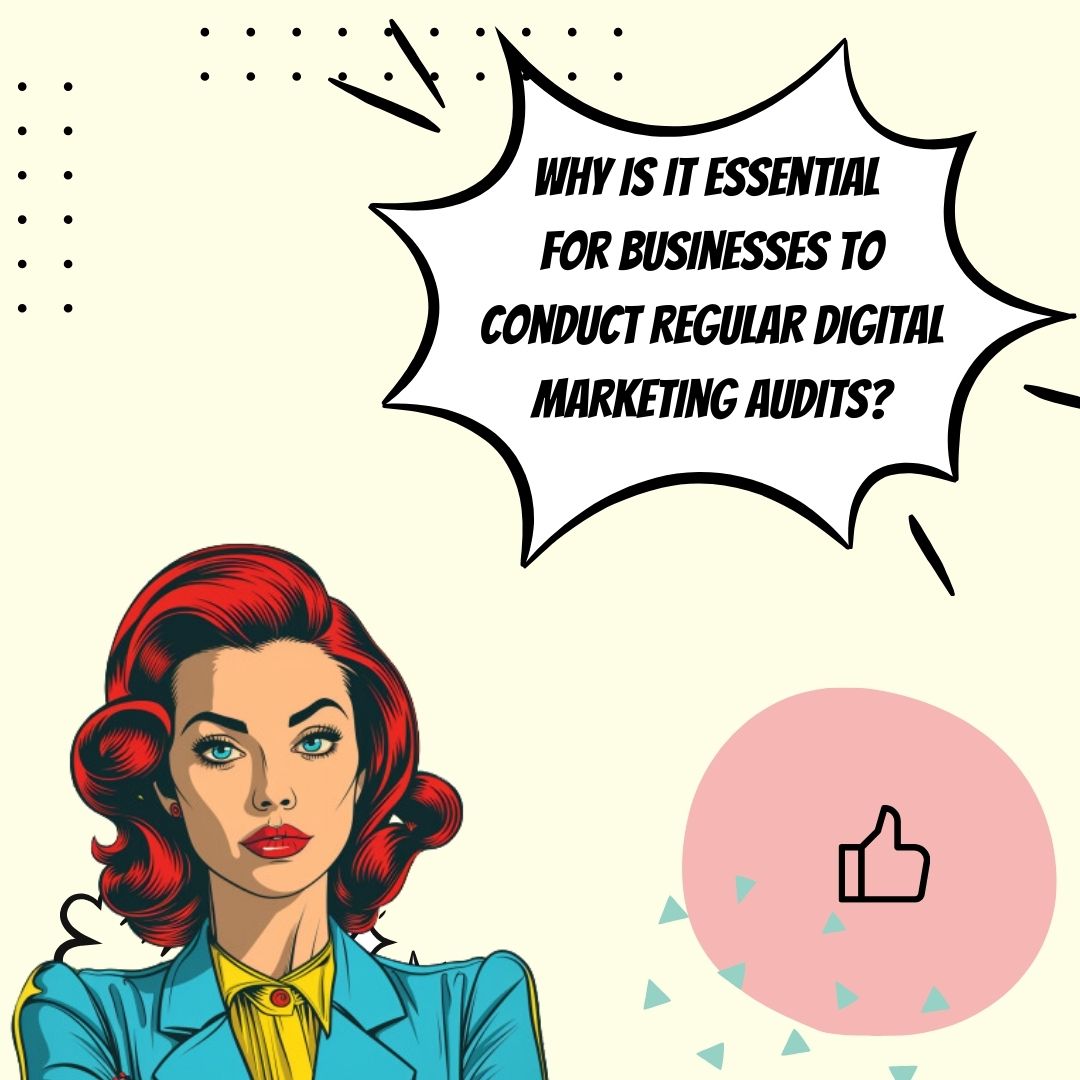Key Takeaways
✅ Comprehensive Checklists and Visual Communication: Conducting thorough marketing audits requires evaluating SEO, content, and user experience. Use a checklist to pinpoint improvement areas, and employ visual tools like stoplight metaphors to effectively communicate findings.
✅ Data-Driven Decision Making and Adaptation: The digital landscape is in constant flux. Stay ahead by adopting a data-driven approach, using analytics to track performance, make informed decisions, and adapt your marketing strategies as needed.
✅ Personalization, Automation, and Security: Embrace personalization, automation, and AI to streamline processes and enhance efficiency. Prioritize security measures and data privacy to protect customer information and build trust.
Introduction
In today's rapid-paced digital world, how can businesses ensure they're not falling behind? The answer lies in marketing audits. These comprehensive evaluations are crucial for understanding your online strengths and weaknesses. By navigating the digital landscape with precision, companies can optimize their resources, significantly boosting ROI and staying ahead of competitors. This article uncovers actionable insights and groundbreaking information, offering innovative perspectives on modern trends to maximize your digital potential.
Top Statistics
| Statistic | Insight |
|---|---|
| Marketing Budget Allocation: Marketing budgets are forecasted to comprise about 13.6% of a company’s total budget in 2023. | This shows that companies are recognizing the importance of investing in marketing to stay competitive in the digital landscape. |
| Multichannel Approach: A multichannel approach is essential for integrating messaging and branding efforts across multiple touchpoints. | Adopting a multichannel strategy helps in reaching a wider audience, ensuring cohesive brand messaging, and enhancing customer engagement. |
| Influencer Marketing: Consumers increasingly seek genuine recommendations from trusted personalities, and influencers have become instrumental in driving purchase decisions and shaping brand perceptions. | Influencer marketing leverages the power of trusted voices to build brand loyalty and drive sales, making it a valuable tool in modern marketing strategies. |
| Digital Audits: A comprehensive digital audit should include quantitative analysis of digital portfolios, qualitative analysis, website crawls, competitive analysis, and key performance indicators (KPIs). | Regular digital audits are crucial for identifying areas for improvement and ensuring that marketing strategies are effective and aligned with current trends. |
| Digital Accessibility: Ensuring digital accessibility compliance is federally mandated in many industries and can improve SEO by growing organic web traffic. | Prioritizing digital accessibility not only meets legal requirements but also enhances user experience and boosts organic traffic. |
Understanding the Need for Digital Marketing Audits
In today's fast-paced online world, businesses must continuously review their digital strategies to stay ahead. Digital marketing audits play a crucial role in achieving this. By conducting periodic audits, companies can optimize their online presence and make better use of their resources. How often should businesses perform these audits, and what should they look for?
What is a Digital Marketing Audit?
A digital marketing audit is a thorough evaluation of a company's online marketing efforts. It encompasses everything from strategies and social media channels to creative assets. Through this process, businesses can uncover strengths and weaknesses, thereby enhancing their return on investment (ROI) and ensuring resources are effectively allocated. What specific areas are evaluated, and how can businesses act on the findings?
Key Components of a Digital Marketing Audit
1. Content Analysis: Assessing the quality, consistency, and alignment of content with the brand.
2. Audience Analysis: Understanding target audience demographics, preferences, and engagement levels.
3. Campaign Goal Analysis: Evaluating the performance of marketing campaigns based on key performance indicators (KPIs).
4. Competitor Analysis: Comparing your digital efforts to what's being done by competitors.

Benefits of Conducting a Digital Marketing Audit
Conducting a digital marketing audit has several benefits:
- Enhancing ROI by optimizing how resources are allocated.
- Identifying and addressing inefficiencies within the digital marketing strategy.
- Ensuring the adherence to industry best practices and keeping pace with digital trends.
- Improving overall campaign performance and conversion rates.
Conducting a Competitive Landscape Audit
A competitive landscape audit is essential for understanding where your business stands relative to others in the market. This involves extensive market research and data analysis. Knowing your competitive landscape helps to identify opportunities and potential threats, guiding better-informed marketing strategies. How often do you scrutinize your competitors, and what methods do you use to gather data?
Best Practices for Digital Marketing Audits
1. Collaboration with Experts: Engaging with experienced professionals or agencies can offer fresh perspectives and specialized knowledge.
2. Preparation: Set clear expectations before starting the audit. Gather all necessary data beforehand.
3. Using Results Effectively: Implement audit findings to refine your marketing strategies and improve performance.
Are you leveraging external expertise and setting the right foundations for a successful audit?
By asking these critical questions and following these guidelines, businesses can navigate the complexities of the digital landscape and stay ahead of the curve.

AI Marketing Engineers Recommendation
Recommendation 1: Leverage Real-Time Analytics for Better Decision Making: In today's fast-paced digital world, utilizing real-time analytics can significantly boost your marketing efforts. Recent studies show that businesses leveraging real-time data see up to a 20% increase in conversion rates. By continuously monitoring key performance indicators (KPIs), companies can quickly adjust their strategies to better meet consumer demands. This means setting up dashboards that display live metrics, enabling a swift response to emerging trends and market changes.
Recommendation 2: Embrace Personalized Marketing Strategies: Personalization remains a pivotal trend in modern digital marketing. According to recent data, 80% of consumers are more likely to purchase from brands that offer personalized experiences. Conducting a detailed marketing audit can identify gaps where personalization can be improved, whether through targeted email campaigns, customized landing pages, or personalized product recommendations. By focusing on individual customer preferences and behaviors, businesses can foster stronger relationships and drive higher engagement.
Recommendation 3: Utilize AI-Powered Tools for Enhanced Insights: AI-powered tools are revolutionizing how businesses conduct marketing audits. Tools like Google Analytics 4 and HubSpot's CRM feature advanced algorithms that can analyze vast amounts of data to uncover hidden trends and insights. Employing AI-powered tools allows for more efficient and accurate audits, highlighting areas for improvement that might be missed through manual analyses. The benefits include improved ROI on marketing campaigns and enhanced overall strategy efficiency.
Relevant Links
- Optimize Your Marketing Goals for Maximum Impact
- Boost Your Audience Engagement and Market Reach
- Leverage User Behavior Data to Enhance Marketing Strategies
- Boost Engagement with Personalized Marketing Campaigns
Conclusion
In conclusion, navigating the digital landscape necessitates the insightful application of digital marketing audits. By systematically evaluating your digital strategies, these audits offer a roadmap to optimize your online presence and enhance resource allocation. A digital marketing audit delves into content quality, audience engagement, campaign performance, and competitor strategies, uncovering both strengths and weaknesses. The benefits are multifaceted: from boosting ROI to ensuring adherence to best practices and staying agile. Competitive landscape audits further sharpen your edge by identifying opportunities and threats. By embracing these practices, businesses can not only improve their current efforts but also shape well-informed future strategies. Ultimately, staying ahead in the digital domain requires continuous reflection and refinement, making digital marketing audits an indispensable tool for modern businesses. Are you ready to audit your digital journey?

FAQs
Question 1: What is a digital marketing audit?
Answer: A digital marketing audit is a comprehensive assessment of a company's digital presence, including its website, social media, and other online channels. It aims to identify strengths, weaknesses, opportunities, and threats to improve digital marketing strategies and optimize performance.
Question 2: What are the key components of a digital marketing audit?
Answer: The key components include quantitative analysis of digital portfolios, qualitative analysis, website crawls, competitive analysis, and recommendations for improvement.
Question 3: What is the purpose of a digital marketing audit?
Answer: The purpose is to evaluate the effectiveness of current digital marketing strategies, identify areas for improvement, and provide actionable recommendations to enhance online presence and drive business growth.
Question 4: How do you prioritize issues discovered during a website crawl?
Answer: Issues are prioritized based on their impact on the website's performance and user experience. The most critical issues, such as broken links and poor site performance, are addressed first.
Question 5: What role does data analytics play in digital marketing audits?
Answer: Data analytics is crucial in providing insights into user behavior, engagement, and conversion rates. It helps identify what strategies are working and where adjustments are needed.
Question 6: How do you measure the success of a digital marketing strategy?
Answer: Success is measured by tracking key performance indicators (KPIs) such as website traffic, conversion rates, and return on investment (ROI). These metrics help evaluate the effectiveness of the strategy and make data-driven decisions.
Question 7: What steps should I take to prepare for a digital marketing audit?
Answer: Prepare by setting clear expectations, gathering historical marketing reports, granting access to digital accounts, and having an organizational chart ready. This ensures a smooth audit process and accurate results.
Question 8: How do I choose the right agency for a digital marketing audit?
Answer: Choose an agency that has expertise in digital marketing, can provide a comprehensive audit, and has a track record of delivering actionable recommendations. Ensure they understand your business goals and can tailor their services accordingly.
Question 9: What are some best practices for implementing digital marketing strategies?
Answer: Best practices include creating targeted content, leveraging industry benchmarks, optimizing channel selection, and continuously monitoring and optimizing performance based on data insights.
Question 10: How do I stay updated with the latest trends in digital marketing?
Answer: Stay updated by following industry leaders, attending webinars, and reading relevant blogs and articles. This helps you adapt to changing trends and stay ahead in the competitive digital landscape

Academic References
- Digital Audits: A Comprehensive Guide. Retrieved from DBS Website. This guide provides a detailed framework for conducting digital audits, including quantitative and qualitative analysis, website crawls, and competitive analysis.
- Navigating Digital Marketing Landscapes: A Blueprint for Association Success. Retrieved from Kabloom Agency. This blueprint highlights the importance of strategic budget allocation, leveraging data insights, and optimizing channel selection for successful digital marketing campaigns in the association sector.
- Navigating the Digital Marketing Landscape: Strategies for Success. Retrieved from LinkedIn. This comprehensive guide explores essential strategies and tactics for navigating the complex world of digital marketing, including native advertising, content marketing, and data analytics.
- The Difference Between Native Advertising and Content Marketing. Retrieved from Nativo. This study demystifies native advertising and content marketing, highlighting their unique roles, advantages, and optimal usage scenarios in digital campaigns.









